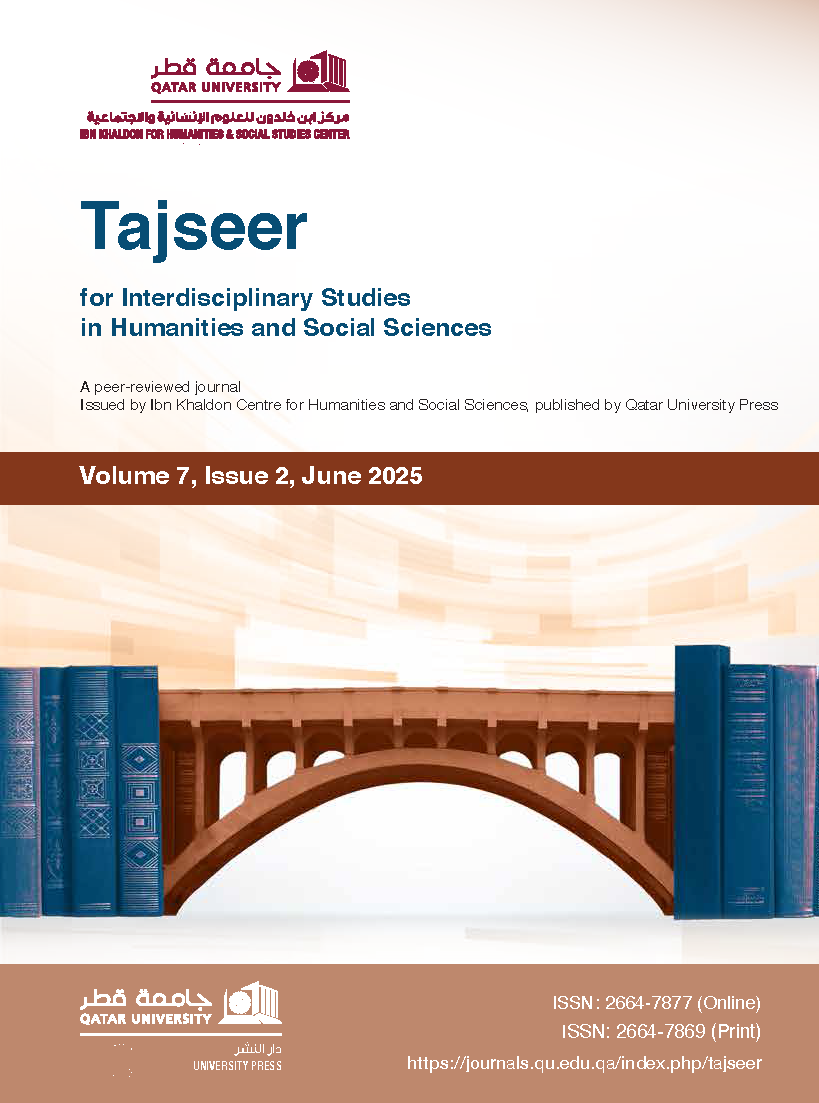Economic and Social Sciences: Building Bridges for Just and Effective Policies
Abstract
This research examines the importance of bridging the gap between economics and social sciences to better understand contemporary economic phenomena. Economics, which emerged in the eighteenth century focusing on capitalist laws, methodological individualism, and self-interest as primary drivers of economic behavior, has been criticized for unrealistic assumptions about individual rationality and complete markets, often neglecting social factors and uncertainty. Given the significant social and economic changes, it is crucial for economics to move beyond abstract models and incorporate insights from sociology to study the institutional and cultural factors that influence individual and group behavior. This interdisciplinary approach enhances public policy development that addresses contemporary challenges and promotes social justice through a deeper understanding of the social factors shaping economic decisions. The research aims to achieve three objectives: exploring the impact of social relationships on economic policies and addressing social gaps, analyzing the adequacy of current economic theories in addressing social justice issues and proposing new models, and emphasizing social justice in creating inclusive economic policies for sustainable development. It illustrates how bridging economics with social sciences leads to more effective and just policies that reflect social realities and foster sustainable development rooted in justice and equality.
Metrics
##plugins.themes.bootstrap3.article.details##
EconomicsSociologySocial JusticeBridgingEconomic Policy
Beri, Suraj. New Economic Sociology, Indira Gandhi National Open University, 2021. https://egyankosh.ac.in/handle/123456789/76986
Bhatt, Gita. "Editor’s Letter: Economics That’s More Human,” Finance & Development, Vol. 61, No. 1 (March 2024), p. 5. https://doi.org/10.5089/9798400265013.022
Boadu, Comfort, Frederick Koomson, and Richard Oppong Ntiri. "Social and Solidarity Economy and Social Inclusion of Cooperatives in the Assin Fosu Municipality, Ghana." Heliyon 10, no. 5 (2024). https://doi.org/10.1016/j.heliyon.2024.e27094
Bögenhold, Dieter. “Economics between Insulation and Social-Scienciation: Observations by a Sociology of Economics,” Journal of Economic Issues, Vol. 52, No. 4 (2018), pp. 1125-1142. https://doi.org/10.1080/00213624.2018.1535954
Bögenhold, Dieter. “Social Network Analysis and the Sociology of Economics: Filling a Blind Spot with the Idea of Social Embeddedness,” American Journal of Economics and Sociology, Vol. 72, No. 2 (2013), pp. 293-318. https://doi.org/10.1111/ajes.12005
Bourdieu, Pierre. “The Forms of Capital,” In: J. Richardson (ed.), Handbook of Theory and Research for the Sociology of Education, New York: Greenwood, 1986, pp. 16-30.
Deaton, Angus. “Rethinking Economics: Questioning one’s views as circumstances evolve can be a good thing,” Finance & Development, Vol. 61, No. 1 (March 2024), pp. 20-21. https://doi.org/10.5089/9798400265013.022
Economic and Social Commission for Western Asia (ESCWA). Toolkit for mainstreaming social justice principles in development policies (in Arabic), Beirut, United Nations, 2020. E/ESCWA/CL2.GPID/2020/MANUAL.2
Hellerstein, Judith K. and Neumark, David. “Social Capital, Networks, and Economic Wellbeing,” Future of Children, Vol. 30, No. 1 (Spring 2020), pp. 127-152.
Kanbur, Ravi, Eduardo Ortiz-Juarez, and Andy Sumner. "Is the Era of Declining Global Income Inequality Over?" Structural Change and Economic Dynamics 70 (2024): 54. https://doi.org/10.1016/j.strueco.2024.01.002
Kanbur, Ravi., Ortiz-Juarez, Eduardo and Sumner, Andy. “Is the Era of Declining Global Income Inequality Over?” Structural Change and Economic Dynamics, Vol. 70 (2024), pp. 45-55. https://doi.org/10.1016/j.strueco.2024.01.002
Lang, Kevin and Majumdar, Sumon. “The Pricing of Job Characteristics When Markets Do Not Clear: Theory and Implications,” NBER Working Papers, No. 9911 (August 2003), pp. 1-33. https://doi.org/10.3386/w9911
Lopera-Arbeláez, Isabel, and Solveig Richter. "Transformative Approaches for Peace-Centred Sustainable Development: The Role of Social and Solidarity Economy." World Development Perspectives 34 (2024). https://doi.org/10.1016/j.wdp.2024.100593
Machado, N. M. “Karl Polanyi and the New Economic Sociology: Notes on the Concept of (Dis)embeddedness,” trans. João Paulo Moreira, RCCS Annual Review, Vol. 3, No. 3 (2011), pp.119-140. https://doi.org/10.4000/rccsar.309
Milanovic, Branko. Capitalism, Alone: The Future of the System That Rules the World. Cambridge: Belknap/Harvard University Press, 2019.
Ostrom, Elinor. “Beyond Markets and States: Polycentric Governance of Complex Economic Systems,” American Economic Review, Vol. 100, No. 3 (2010), pp. 641-672. https://doi.org/10.1257/aer.100.3.641
Raworth, Kate. “A New Compass for Economics,” Finance & Development, Vol. 61, No. 1 (March 2024), pp. 12-14. https://doi.org/10.5089/9798400265013.022
Restakis, John and Mendell, Margie. “Public Policy for a Social Economy,” In: Michel Bauwens, George Dafermos, and John Restakis (eds.) Commons Transition: Policy Proposals for an Open Knowledge Society, Amsterdam: Foundation of Peer-to-Peer Alternatives, 2015.
Rijpens, Julie, and Hermanson, James. “What Is the Social and Solidarity Economy? A Review of Concepts,” OECD Local Economic and Employment Development (LEED) Papers, No. 13, Paris: OECD, 2023. https://doi.org/10.1787/dbc7878d-en
Rijpens, Julie, and James Hermanson. What Is the Social and Solidarity Economy? A Review of Concepts. Paris: OECD, 2023. https://www.oecd.org/content/dam/oecd/en/publications/reports/2023/09/what-is-the-social-and-solidarity-economy-a-review-of-concepts_4b3d724b/dbc7878d-en.pdf
Roaldsnes, Andreas. “Social Capital and the Intergenerational Transmission of Cultural Capital: How Parents’ Social Networks Influence Children's Accumulation of Cultural Capital,” Poetics, Vol. 102 (2024), pp. 1-22. https://doi.org/10.1016/j.poetic.2024.101873
Stikkers, Kenneth W. “Dewey, Economic Democracy, and the Mondragon Cooperatives,” European Journal of Pragmatism and American Philosophy, Vol. 3, No. 2 (2011), pp. 1-15. https://doi.org/10.4000/ejpap.833
Thomas Piketty, L’économie des inégalités, Paris: La Découverte, 5th ed., 2004.
Trigilia, Carlo. “Unbalanced Growth: Why Is Economic Sociology Stronger in Theory than in Policies?” Current Sociology, Vol. 55, No. 1 (2007), pp. 59-74. https://doi.org/10.1177/0011392107070134
UN. Executive Committee on Economic and Social Affairs, “Social Dimensions of Macroeconomic Policy: Report of the Executive Committee on Economic and Social Affairs of the United Nations,” Serie Informes y estudios especiales, United Nations: United Nations Digital Library System, 2001. https://digitallibrary.un.org/record/458932?v=pdf
*****************************************************************
اللجنة الاقتصادية والاجتماعية لغربي آسيا (الإسكوا)، دليل إدماج مبادئ العدالة الاجتماعية في السياسات الإنمائية، بيروت: الأمم المتحدة، 2020. E/ESCWA/CL2.GPID/2020/MANUAL.2



 https://orcid.org/0000-0003-4600-7315
https://orcid.org/0000-0003-4600-7315